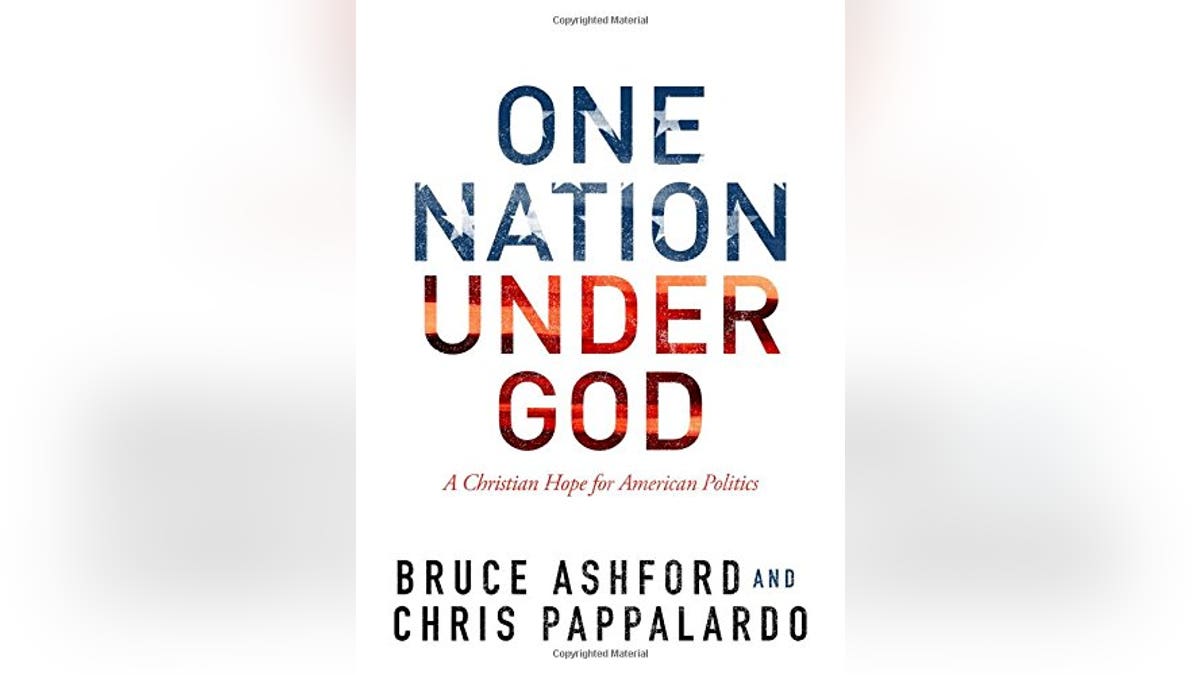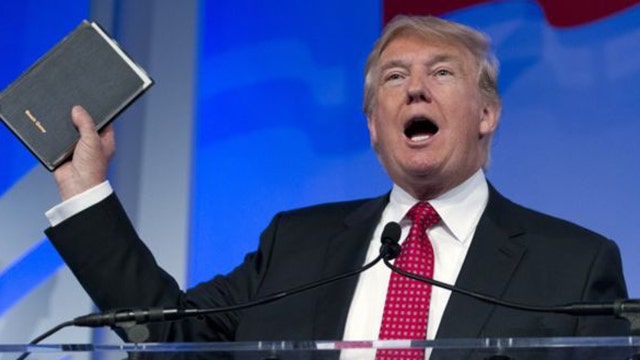Is Trump missing this essential part of the Christian faith?
Spirited Debate: Dr. Robert Jeffress weighs in on Trump's faith amid push for Evangelical voters
Few phrases prompt more confusion in the United States today than the seemingly simple words, “separation of church and state.” Everyone seems to intuitively sense what this means. But ask 10 Americans how separation of church and state should play out, and you’re liable to get 10 different answers.
When it comes to the voting booth, many Americans—Christians as well as non-Christians—want to apply the separation of church and state in all the wrong ways. Specifically, they want to pretend that what happens in the church is irrelevant for the state. Or, to put it differently, they would like Christians to leave their religion at the door. Look at the candidate’s policies, they urge, not his/her faith.
We sympathize with some of this sentiment, of course. There is a certain naiveté in flatly asking, “Which one of these guys is Christian? That’s who I’m voting for.” Faith isn’t everything.
But faith is something. A very important something, in fact. And every candidate has one.

You read that right. We are all believers. The question isn’t, “Does this person believe?” but rather, “What does this person believe?” As author and clergyman Richard John Neuhaus often said, “Politics is chiefly a function of culture, at the heart of culture is morality, and at the heart of morality is religion.”
Every last candidate out there, from the outspoken Christian to the outspoken atheist (still a rare breed in American politics), has a “religion,” whether they use the term or not. Something sits at the center of their lives, commanding their loyalty, guiding their principles of right and wrong. That something acts as the god of that candidate’s life.
Discerning what that god actually is, however, can be a tricky business. There are at least three layers of faith that need to be unraveled.
The first is the stated faith of the candidate. The religious tradition of candidates (should) exercise a significant shaping influence on their political life. Christianity views life much differently than, for instance, Buddhism, and there will be consequences in the political realm.
The second layer is that of the “functional god.” The Bible teaches that every human being ascribes ultimate worth to some person or ideal. It may be sex, money, power, family, or the approval of others. Even if a candidate claims a Christian heritage, his life may betray that claim to reveal that what truly drives him is power.
The third layer to consider is that of political ideology, which can often act as a pet “god” of sorts. Liberalism idolizes the individual. Conservatism idolizes heritage. Nationalism idolizes the nation itself. Socialism idolizes equality. Good ideals, all—but dangerous gods.
In short, Christian voters must vote according to faith. But we’ve also got to be wise enough to consider all three layers of a candidate’s faith. If we did, our nation would never look the same.





















